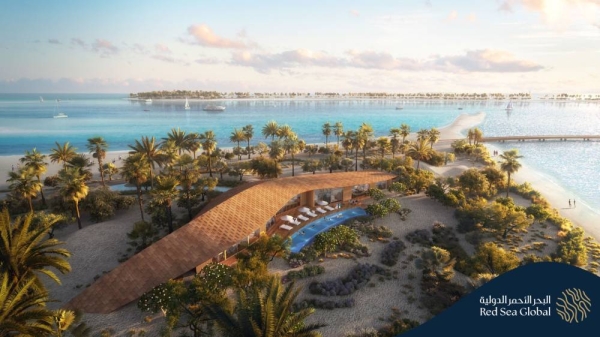
The dismissive retort of Lebanon’s ridiculous Foreign Minister Abdullah Bou Habib to GCC proposals for addressing the latest crisis was: “If they just want Hezbollah’s head on a plate, we can’t give them that.” Healso ludicrously blamed Saudi Arabia for Hezbollah flooding the Gulf states with narcotics. Such was BouHabib’s volley of abuse that he may need to serve up his own head on a plate if there is to be any hope of salvaging this shattered relationship.
The logic of abandoning Hezbollah and Lebanon to drown together, as advocated by some Arab opinion leaders, may appear seductive. However, this would be disastrously counterproductive. Gaza was abandoned to Hamas; the economy collapsed and people starved, but Hamas entrenched its monopoly. Gulf states disassociated themselves from post-2003 Iraq, surrendering it to Tehran. Arab abandonment of Syria rendered it a hellish playground for Iranian-Hezbollah-Russian interests. Lebanon would be the cherry on the cake for Iranian dominance of the Arab world. And once it is given away, wresting it back will be no easy feat.
Hezbollah is Tehran’s Trojan horse for colonizing the Arab world. We must dismantle it, not welcome it in. The Houthis in Yemen thrived thanks to Hezbollah training and support. Hezbollah waded through a river of Syrian Arab blood to maintain Tehran’s puppet in power, with Hezbollah deputy leader Naim Qassim now threatening to send additional Hezbollah forces back to Syria. Hezbollah leader Hassan Nasrallah is the idol of thousands of bearded Hashd thugs in Iraq — and after their recent electoral wipeout, Tehran wants Hezbollah to play an even more direct role.
The international community is wrong to consider Lebanon in isolation. In the context of escalating stakes in Iran’s game of nuclear brinkmanship, Hezbollah is just one of the cards in Tehran’s efforts to dominate the region, buttressed by nuclear and ballistic weapons. If we are to abandon Lebanon, we may as well go the whole way and recognise Ayatollah Khamenei as Supreme Leader over the entire region.
Iran and Hezbollah made inroads only because of the eclipse of Arab nationalism — the belief that Arabs should stand together locally and on the world stage. From Jerusalem to Sanaa, from Baghdad to Beirut, we should treat every inch of Arab territory as sacrosanct and worth fighting for, particularly when UN institutions, international law and multilateral forums are under sustained attack. Every scrap of territory we relinquish only makes our enemies hungry for more. With the Arab world’s mighty collective resources, the challenges posed by tiny Lebanon and hostile Iranian encroachment should be well within our capabilities.
Let’s not rip our own heart out. The Arab world without Beirut — without the Lebanon of Khalil Gibran, Mikhail Naimy, Fairuz — is inconceivable. Generations of Khaleejis flocked to Lebanon and fell in love with the country and its people, which is why so many are blessed with Lebanese mothers! The largely Kuwaiti-owned town of Bhamdoun, near Beirut, is a microcosm of this seamless Lebanese-Khaleej relationship. Generations of Arabs were raised on Lebanese films and TV, art, music, poetry, and boundless creativity.
Lebanon’s cultural renaissance since the civil war was achieved thanks to vast GCC investment. Its economy thrived thanks to millions of Arab visitors every year, with tens of billions of dollars of investment in banking, telecoms, media, infrastructure, culture and the military. Diaspora remittances amount to about $7 billion a year, $2.2 billion from Saudi Arabia alone, and Lebanese assets in Saudi Arabia are worth about $100billion. Eighty percent of Lebanese fruit and vegetable exports went to Saudi Arabia until Nasrallah turned Lebanon into a narco state.
This is not about gratitude, but rather a hard-headed understanding of the foundations of Lebanon’s past and future prosperity. The transformation into an Iranian appendage was always fated to fail. Aside from lavishing funds on Hezbollah, would — or could — Tehran supply the merest fraction of Gulf investment in Lebanon? The trickle of Iranian tourists encouraged by Hezbollah have minuscule spending power compared with their Gulf predecessors.
Other than in Houthi-land, where George Kordahi is hailed a hero (his family must be so proud!) Lebanon’s hapless information minister is a nobody who once had a lucky break via a Saudi TV channel. The problem is infinitely larger than his bigoted views. Virulent anti-Gulf propaganda has been pumped out for decades by Al-Manar and dozens of other Iran-sponsored Beirut media channels. The damage is entirely to Lebanon, cutting off its nose to spite its face in gratuitous self-mutilation against Lebanon’s Arab identity.
GCC political leaders and intellectuals I speak to aren’t so much angry as puzzled and saddened. They have lifelong ties with Lebanon and instinctively desire to help. But how can you assist someone who is destroying themselves and doesn’t want to be rescued?
Lebanon’s criminal leaders are beyond redemption (not just Hezbollah – kullun!), but Lebanon’s citizens — Christian, Shiite, Druze, Sunni — are Arab to the bone. They know where their interests lie. They know what severing ties with the Arab world has cost them. They all have brothers, uncles, sons in Gulf and Arab states, and so retain intimate material and emotional connections to the Arab world.
Lebanon is drowning but it is not lost. Particularly with elections just months away and a vigorous upswell of progressive anti-sectarian independents arising from the 2019 movement, there is everything to play for. Hashd electoral losses in Iraq demonstrate how public anger can be translated into political losses for Iranian proxies. In Lebanon, Hezbollah’s political dominance is wholly reliant upon hollowed-out Christian factions whose support base has cratered.
Lebanese citizens who lost everything are desperately looking for a savior. Arab states can use the elections to toss Lebanon a lifeline. If citizens elect new and non-discredited leaders who can marginalize Hezbollah then the GCC will fully re-engage, while also encouraging international donors such as the IMF to refloat the economy.
This is a vision that every patriotic Lebanese citizen can rally around, simultaneously giving them a reason to participate in the democratic process, providing an exit route from their hellish situation, and sweeping aside these ridiculous, hated figures who have dominated Lebanese politics for decades too long.
The Lebanese Arab nation today is held hostage, with Hassan Nasrallah pointing a gun to her head. Will the Arab world hasten to Lebanon’s rescue?












